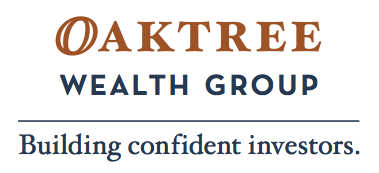We believe that there is a difference between investing and speculating. Much of the investment community is focused on attempting to forecast the future (stock selection, market timing, past-performance investing). We focus on utilizing the science of investing and harnessing the power of the capital markets. Decades of research guide the way.
Our investment guidance is based on a philosophy called Free Market Portfolio Theory. This philosophy is based on three fundamental beliefs:
1. Free markets work
We believe that free markets work. The market is not perfect, but it is the best mechanism available in terms of pricing securities. This belief is based on the Efficient Market Hypothesis, first explained by Eugene F. Fama in his 1965 doctorate thesis.
"An efficient market is defined as a market where there are large numbers of rational profit-maximizers actively competing, with each trying to predict future market values of individual securities, and where important current information is almost freely available to all participants. In an efficient market, competition among the many intelligent participants leads to a situation where, at any point in time, actual prices of individual securities already reflect the effects of information based both on events that have already occurred and on events which, as of now, the market expects to take place in the future. In other words, in an efficient market at any point in time the actual price of a security will be a good estimate of its intrinsic value." Eugene F. Fama, "Random Walks in Stock Market Prices," Financial Analysts Journal, September/October 1965.
What this means:
- We believe that markets are efficient and that they work.
- We focus on capturing market returns as opposed to trying to beat it. In fact, empirical data shows that the majority of asset managers fail to beat their benchmark over long periods of time.
- We utilize asset-class or structured funds.
- We diversify prudently.
- We eliminate stock picking, track record investing and market timing from the investment process.
2. The sum is greater than the parts
The second basic component of our investment philosophy is Modern Portfolio Theory, which earned the Nobel Prize in Economics in 1990 for the collaborative work of Harry Markowitz, Merton Miller and Myron Scholes.
What this means:
- The risk of an individual asset is far less important than the contribution the asset makes to the portfolio’s risk as a whole.
- For the same amount of risk, diversification can increase returns.
- The mechanism to reduce risk is dissimilar price movements; therefore, the task is to find assets with low correlations.
- The Efficient Frontier allows individuals to maximize expected returns for any level of volatility.
3. Only some risks are rewarded
The final component of Free Market Portfolio Theory is the Three-Factor Model, which defines three independent dimensions of equity returns. Until recently, much of investing involved guessing what really matters in returns. In 1991 Eugene F. Fama and Kenneth R. French, two leading economists, conducted an exhaustive investigation into the source of risk and return. Grounded in Efficient Market Hypothesis, their research revealed that a portfolio’s exposure to three simple but diverse risk factors determines the vast majority of investment results. These three factors are referred to as the Three-Factor Model.
The Three-Factor Model—A Summary
- There are three independent dimensions of equity returns.
- It is possible to apply these factors to measure the role of each factor in returns.
- The 3 Factors are:
- The Market Factor: the extra risk of stocks vs. fixed income.
- The Size Effect: the extra risk of Small-Cap stocks over Large-Cap stocks.
- The "Value" Effect: the extra risk of high Book-to-Market (BtM) over low BtM stocks.
What this means:
- It is possible to identify the sources of risk that will compensate you with premium returns.
- You need to decide how much of each type of risk you are willing to tolerate. You must structure your portfolio to achieve risk exposures in the most effective manner.
- It clarifies decisions because portfolios are based on research and rational expectations rather than hunches.
